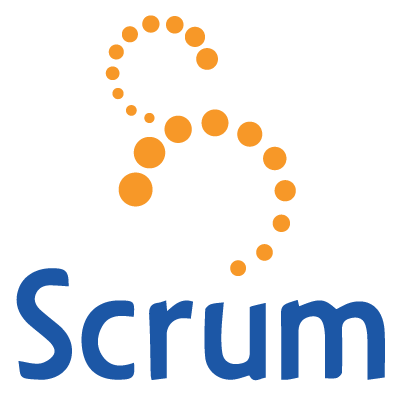
I am a developer…a software engineer…a coder, whatever you want to call it. If you’re not, don’t fret…I think the basic ideology of this article can be applied to any profession.
Confidence is key. A little confidence can transform a professional world of doubt/fear into a thoroughly enjoyable career. Once you reach the tipping point where confidence outweighs doubt, it transforms your experience. In conjunction, when confidence is lacking, frustration and fear linger. It’s hard to enjoy your profession if you are constantly scared that your skills MIGHT be inadequate. You feel the need to rush, taking shortcuts to hurriedly connect the dots…you MUST get something done before someone notices that you’re falling behind the imaginary expectations you’ve fixed inside your own mind. You rarely take the necessary time really needed to deeply understand and retain. It’s plain to see that confidence is key.
BACK THEN
Background…
First, a little background about myself. I’m generally a pretty confident person. Growing up, I don’t often, if ever, remember lacking confidence. I grew up succeeding in fairly small circles…I felt like I could accomplish anything if I put my mind to it. I never experienced doubt…academically, athletically, skills-wise in nearly any way. I had parents that believed in me and sacrificed self to put me in a position to thrive…an environment to succeed in every way. I knew they were proud of me, and that certainly helps any kid be confident and succeed.
College…
Fast-forward to college. My freshman year at Purdue, I first experienced academic doubt…I’m not as smart as I thought…I might be average…perhaps below average in my field? Did I really just get a 33% on an exam? I had never been in groups where I felt like I was in the “dumber half”. I remember working on homework in groups and coming away feeling guilty: “Did I contribute anything at all to that discussion/resolution? I’m not sure that I could have done that on my own.” Even when I succeeded, a recurring line of thought was, “Sure, I just got an A on my project, and genius over there also got an A on his project, but why did it take me 12 hours when it only took him 4? Is Computer Science really for me?”
Internship…
The summer after my junior year of college, I landed an internship in Deerfield Beach, Florida. Purdue’s Computer Science program didn’t require much, if any, web-programming knowledge. They preached “the fundamentals: learning how to learn…acquiring the basic building blocks to assemble a rock-solid foundation”. I get to my internship…all web stuff…oh boy. Truth be told, I felt like I accomplished a lot that summer, but in the end, they sent me a review letter that thanked me for my sevices and explained why they weren’t offering me a job. One line stood out above all the others. It went something like, “you accomplished a lot this summer, but not without a lot of necessary hand-holding”. That was a big blow to the little confidence I had started to amass, but looking back, I’m glad they had the guts to be honest with me in their assessment, even if it stung at the time. Most companies probably would have just said “we’re not making you an offer…have a nice life” and left me to wonder.
NOW
Only in the last 1.5 years has my professional confidence reached critical mass, and it has come from two key things: 1) others believing in me along the way, 2) working here at E-gineering, where I’ve had the freedom to learn so many different things and the people to mentor me while I do it.
Others Believing in Me…
Back to my freshman year of college. Doubt had arrived. I was questioning if this programming thing was for me. I distinctly remember talking to one of my high school teachers, Mrs. Koss, on the phone. We didn’t talk long, but I remember expressing some of the doubts I had about whether I was cut out for Computer Science…doubts of whether I was even capable of earning this degree. I remember saying something about how I used to think I was pretty smart, but now I’d found that I was only average around here. In that moment, I remember Mrs. Koss speaking some real words of encouragement to me. I don’t remember exactly what she said, but whatever it was, she really sold me on the fact that she wasn’t accepting my evaluation of myself, and she was darn sure that I could do this, because she had seen firsthand that I was plenty capable.
At my first “real” job, a software engineer for Intel Corporation, I still hadn’t completely bought in that I could REALLY be good at my profession. As the rookie on the team, my head was constantly spinning as I tried to drink from the firehose that is microchip manufacturing. However, from week one, I was fortunate enough to have the guidance and mentorship of Chee Pin Cheam, a 20 year software veteran. On a continual basis, he blew wind into my sails with his high praise. I don’t know if I was actually impressing him or if he just knew exactly what I needed, but I’m here to tell you that it doesn’t much matter. Find someone that you can be Mrs. Koss for…find someone for which you can be Chee Pin Cheam. You just might end up being the key ingredient that gets that person’s confidence to critical mass.
Working Here at E-gineering…
I’m finally starting to feel like I already know at least a little bit about most of the things I hear in the tech world. Just knowing what something is makes a big difference, even if you haven’t ever actually used a particular technology/tool/concept. Once you learn enough different things, all of the buzzwords start to have some real meaning. When you hear random words like “framework” or “dependency injection” or “server side language”, you immediately receive value/meaning from them instead of thinking “that sounds ambiguous and unhelpful”. You begin to have a bunch of labeled boxes, and 99% of the new things you come across fit neatly into one of those boxes. As you mentally file away that new thing, you think, “I already know so much about this, because I know so much about something else that sits in that same box.” A tremendous amount of confidence can be acquired when you reach this point. For me, this didn’t happen until I came here to join the E-gineering family. Here at E-gineering, there are so many fundamental aspects that build up the employees. E-g’s leadership knows that if they care for and build up their employees, their employees will care for and serve their clients. There are a plethora of ways they do this:
- E-g “puts its money where its mouth is” when it comes to encouraging learning. The company pays for employees to go to conferences, sponsors local tech gatherings, and encourages everyone to spend time each week reading, staying up to date, and exploring pertinent topics. There is no pressure to bill a certain percentage of hours.
- E-g is not afraid to hire what some may refer to as a “project”. Many times I have seen E-g hire a GREAT person that might not have the perfectly applicable skillset. They then put in the necessary time and care to home-grow that talent.
- E-g believes in its employees.
- E-g has taken care, over the years, to create an environment where “friends help friends”. If one person doesn’t know how to do something, three people are ALWAYS willing to help.
- E-g enables its employees to work hard while remaining relaxed, low-stress, and not in a rush.
- E-g masterfully walks the line between shielding employees from roles they’re not ready for and thrusting people into positions that stretch them and spur growth.
CONCLUSION
No matter where you work, or what field you work in, a dash of confidence makes a world of difference, and the lack there of can be a real detriment. If you find yourself lacking, first, admit it to yourself. Then, go out and find someone that believes in you. Finally, put yourself in an environment that sets you up to succeed. I hope I have inspired you to make a plan to get your confidence to critical mass, but whatever you do, don’t manufacture false confidence…nobody likes that guy. 🙂
I would be remiss if I didn’t mention my inspiration: a series of posts containing much more inspirational writing than my own. The following three excellent articles by Preethi Kasireddy are what sparked me to write my first “un-forced” paragraphs in years:
1) Why I left the best job in the world
2) What happened after I left the best job in the world to become an engineer?
3) Learning How to Learn: The Most Important Developer Skill

 Scrum Happens!
Scrum Happens!